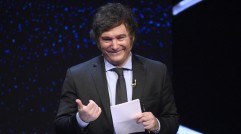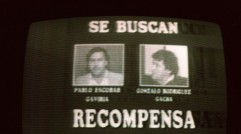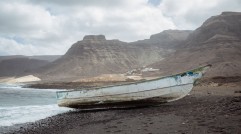NASA Astronaut Scott Kelly to Spend Record-breaking Year in Space
NASA astronaut Scott Kelly has begun his adventure. Over the next year, he and Russian cosmonaut Mikhail Kornienko will live in the International Space Station, USAToday reports.
The spacecraft carrying Kelly and Kornienko blasted off into space from the Baikonur Cosmodrome in Kazakhstan Friday.
Less than six hours later they reached their destination and docked with the space station. Along with Kelly and Kornienko was cosmonaut Gennady Padalka who will join the team for a six-month expedition.
NASA hopes by sending the duo to the International Space Station for a year they will learn about issues astronauts will face on longer voyages to Mars. In the future, trips to Mars would last at least 500 days.
"The world is excited about your mission," NASA Administrator Charles Bolden told the crew before it departed for the launch pad. "It's the beginning of a new phase of exploration between our two countries ... and takes us a little bit farther on the journey to Mars, and that's really important for us."
While Kelly is orbiting the earth for a year, NASA will conduct a study on the effects of space on the human body, Fox News reports. They will compare his data to that of his twin brother Mark, back on Earth. Mark is a former astronaut.
Mark Kelly's blood samples, exercise and overall health will be monitored for a year. His results will be gathered and compared to those of his brother's to see what the impact of a year in space to the body.
"This mission will push the limits of what Americans can do in space," Mark Kelly said. "I hope it will advance our understanding of what happens when people leave the planet for a long time and help pave the way for sending Americans beyond low-earth orbit."
It is known that months in space can cause the loss of bone and muscle mass, weakened immune systems and impaired vision. This expedition is longer than just a few months and plans to track the health of astronauts over a longer period of time and with better technology than what was available when Russian missions last spent over a year in space.
When Kelly first heard of the idea of spending an entire year in space, he was not excited.
"I'll be honest with you, I wasn't all that interested," he said. "After mulling it over, talking to my family, friends, girlfriend, I decided that the challenges that staying in space for a whole year presented was appealing to me even considering the sacrifices."
Kelly hopes to pace his workload so that he does not get burned out before the mission is over.
"I hope I get six months into this, and I have six months of energy left in the battery to get to the end," he said. "I think I will."
During his free time, Kelly will be able to send email to his family as well as speak to them through a webcam. He will also be able to watch TV shows that are uplinked to him.
Kelly will write in a journal everyday, sharing his experiences and emotions with scientists.
"You'll miss your friends and family on Earth," he said. "You also miss being able to leave, being able to go outside your place of work. It's kind of like you're at work 24/7 for a whole year."
Subscribe to Latin Post!
Sign up for our free newsletter for the Latest coverage!
* This is a contributed article and this content does not necessarily represent the views of latinpost.com














